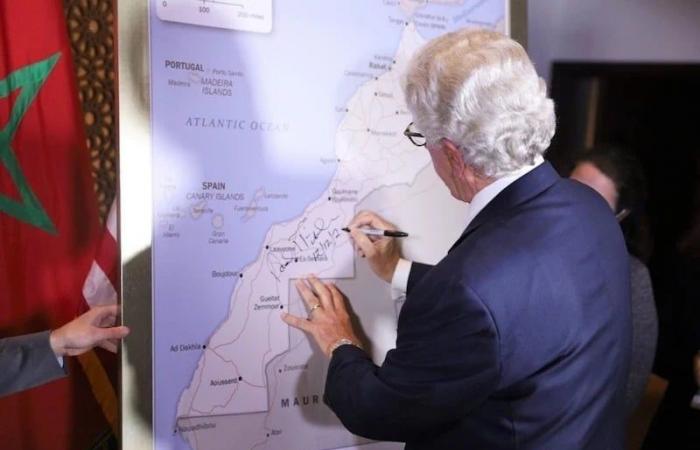A recent analysis of Washington Institute for Near East Policy highlights the prospect of a strengthening of Donald Trump’s recognition of Moroccan sovereignty over the Sahara. According to this analysis, Trump’s return to the White House could lead to concrete measures, including the opening of an American consulate in Dakhla, a promise made in 2020 but which has remained a dead letter until now.
According to the analysis, this effective diplomatic presence could be accompanied by lucrative investment opportunities for American companies. However, despite the free trade agreement signed between Washington and Rabat twenty years ago, flows of American foreign direct investment in the Saharan region remain timid. The study by researcher Souheir Medini, entitled “European Union – Morocco relations: between law and politics? », underlines that this situation could evolve under a new Trump administration.
However, the analysis specifies that the development of economic relations with the United States will come up against the predominance of the European Union, Morocco’s leading trading partner and investor, thanks to its geographic proximity and other structural factors.
According to this same analysis, a persistent disagreement between Washington and Brussels on trade issues and the Sahara could open the door to increased influence from Russia and China in Morocco. These powers have discreetly strengthened their presence, particularly in the natural resources and fishing sectors.
For example, the analysis recalls that Russia has renewed a four-year fishing agreement with Rabat, while China plans to intensify its investments, notably in green hydrogen projects in the Saharan provinces, following to the memorandum signed in 2023 with Gaia Energy and Ajnan Brothers.
-The study also focuses on the recent decision of the Court of Justice of the European Union (CJEU), which annuls the EU-Morocco trade agreements relating to agricultural and fishery products from the Sahara. According to the analysis, this decision complicates relations between the EU and Rabat, creating a legal vacuum from which Moscow and Beijing could take advantage. This verdict represents a setback for Rabat and Brussels, but a symbolic victory for the Polisario Front.
The analysis highlights that, without an appropriate response from the EU and the United States, Morocco could turn more towards China and Russia. To avoid this drift, Brussels must ensure that its agreements respect the legal requirements of the CJEU, while Washington could strengthen its diplomatic support for Moroccan sovereignty over the Sahara in UN discussions.
The analysis also highlights Rabat’s measured reaction to this decision, contrasting with the diplomatic break in 2016 after a similar verdict. According to the analysis, this attitude reflects Morocco’s confidence in the diplomatic progress obtained in recent years on the Saharan question. This confidence is partly fueled by the growing support of several EU member states for the Moroccan autonomy proposal for the Sahara, supported today by at least twenty European countries.
Finally, according to the analysis, the return of Donald Trump could offer Morocco a unique opportunity to strengthen its position on the international scene, provided that European and American partners adopt coherent strategies to resolve legal disputes and support the stability of the region.






